- Home
- Philip Pullman
The Secret Commonwealth (Book of Dust Volume 2) Page 3
The Secret Commonwealth (Book of Dust Volume 2) Read online
Page 3
“Did you? Really?”
“A bun or a clout. I even worked there for a bit, washing dishes, making tea and coffee. I was about nine, I think.”
“Did your parents let— Oh God. Sorry. Sorry.”
The only thing Lyra’s friends knew about her background was that her parents were people of great family on both sides who had died when she was young. It was understood that this was a source of great sorrow to Lyra and that she never talked about it, so naturally their speculation flourished. Now Miriam was mortified.
“No, I was in the care of Jordan by then,” Lyra said cheerfully. “If they’d known, I mean if the Jordan people had known, they’d have been surprised, I suppose, but then they’d have forgotten about it and I’d have kept on going there anyway. I sort of did what I wanted.”
“Didn’t anyone know what you were doing?”
“The housekeeper, Mrs. Lonsdale. She was pretty fierce. I was always getting told off, but she knew it wouldn’t do any good. I could be quite well behaved when I needed to be.”
“How long were you— I mean, how old were you when— Sorry. I don’t mean to pry.”
“The first thing I remember is when I was taken to Jordan for the first time. I don’t know how old I was—probably just a baby. I was being carried by a big man. It was midnight and stormy, with lightning and thunder and pouring rain. He was on a horse, and I was wrapped up inside his cloak. Then he was banging on a door with a pistol, and the door opened and it was all warm and light inside, and then he handed me over to someone else and I think he kissed me and got on his horse and rode away. He was probably my father.”
Miriam was very impressed. In truth, Lyra wasn’t sure about the horse, but she liked it.
“That’s so romantic,” Miriam said. “And that’s the first thing you remember?”
“The very first. After that, I was just…living in Jordan. Have been ever since. What’s the first thing you remember?”
“The smell of roses,” said Miriam at once.
“What, a garden somewhere?”
“No. My father’s factory. Where they make soap and things. I was sitting on his shoulders, and we were in the bottling plant. Such an intense sweet smell…The men’s clothes used to smell of it, and their wives had to wash them to get it out.”
Lyra was aware that Miriam’s family was rich, and that soaps and perfumes and such things were behind their wealth; Miriam had a vast collection of scents and fragrant ointments and shampoos, and it was a favorite occupation of her friends to try out all the new ones.
Suddenly Lyra realized that the other girl was weeping. She stopped and took Miriam’s arm. “Miriam, what is it? Was it that letter?”
“Daddy’s bankrupt,” Miriam said shakily. “It’s all over. That’s what it is. So now you know.”
“Oh, Miriam, that’s awful!”
“And we won’t—they can’t—they’re selling the house, and I’ll have to leave college—they can’t afford…”
She couldn’t go on. Lyra held out her arms, and Miriam leant against her, sobbing. Lyra could smell the fragrance of her shampoo, and wondered if there were roses in that too.
“Hush,” she said. “You know there are bursaries and special funds and…You won’t have to leave, you’ll see!”
“But everything’s going to change! They’re having to sell everything and move to…I don’t know…And Danny will have to leave Cambridge and…and it’s all going to be horrible.”
“I bet it sounds worse than it is,” said Lyra. Out of the corner of her eye, she could see Pan whispering to Syriax, and she knew he was saying just the same sort of thing. “Course it was a shock, learning about it in a letter over breakfast. But people survive this sort of thing, honest, and sometimes things turn out much better than you think. I bet you won’t have to leave college.”
“But everyone will know….”
“So what? It’s nothing to be ashamed of. Things happen to people’s families all the time and it’s not their fault. If you cope with it by being brave, people will admire you for it.”
“It’s not Daddy’s fault, after all.”
“Course not,” said Lyra, who had no idea. “Like they teach us in economic history—the trade cycle. Things that are too big to resist.”
“It just happened, and no one saw it coming.” Miriam was fumbling in her pocket. She brought out the crumpled letter and read: “ ‘The suppliers have simply been so unreasonable, and although Daddy has been to Latakia again and again, he can’t find a good source anywhere—apparently the big medical companies are buying everything up before anyone else can—there’s absolutely nothing one can do—it’s too awful….’ ”
“Suppliers of what?” said Lyra. “Roses?”
“Yes. They buy them from the gardens over there and distill them or something. Attar. Attar of roses. Something like that.”
“Won’t English roses do?”
“I don’t think so. It has to be roses from there.”
“Or lavender. There’s lots of that.”
“They—I don’t know!”
“I suppose the men will lose their jobs,” Lyra said as they turned into Broad Street, opposite Bodley’s Library. “The men whose clothes smelled of roses.”
“Probably. Oh, it’s awful.”
“It is. But you can cope with it. Now, when we sit down, we’ll make a plan of what you can do, all the options, all the possibilities, and then you’ll feel better at once. You’ll see.”
In the café, Lyra ordered bacon and eggs and a pint of tea. Miriam didn’t want anything except coffee, but Lyra told George to bring a currant bun anyway.
“If she doesn’t eat it, I will,” she said.
“Don’t they feed you in that college?” said George, a man whose hands moved faster than anyone’s Lyra had ever seen, slicing, buttering, pouring, shaking salt, cracking eggs. When she was young, she’d greatly admired his ability to crack three eggs at once into a frying pan with one hand and not spill a drop of white, or break the yolk, or include a fragment of shell. One day she got through two dozen trying it herself. That had earned her a clout, which she had to admit she deserved. George was more respectful these days. She still couldn’t do the egg trick.
Lyra borrowed a pencil and a piece of paper from George and drew three columns, one headed Things to do, the next Things to find out, and the third Things to stop worrying about. Then she and Miriam, and their two dæmons, filled them in with suggestions and ideas as they ate. Miriam finished the currant bun, and by the time they’d covered the paper, she was almost cheerful.
“There,” said Lyra. “It’s always a good idea to come to George’s. St. Sophia’s breakfasts are very high-minded. As for Jordan…”
“I bet they’re not austere like ours.”
“Socking great silver chafing dishes full of kedgeree or deviled kidneys or kippers. Must keep the young gentlemen in the style to which they’re accustomed. Lovely, but I wouldn’t want it every day.”
“Thank you, Lyra,” said Miriam. “I feel much better. You were quite right.”
“So what are you going to do now?”
“Go and see Dr. Bell. Then write home.”
Dr. Bell was Miriam’s moral tutor, a sort of pastoral guide and mentor. She was a brusque but kindly woman; she’d know what the college could do to help.
“Good,” said Lyra. “And tell me what happens.”
“I will,” Miriam promised.
Lyra sat there for a few minutes after Miriam had gone, chatting to George, regretfully turning down his offer of work in the Christmas vacation, finishing her pint mug of tea. But eventually came the time when she and Pan were alone again.
“What did he tell you?” she said to him, meaning Miriam’s dæmon.
“What she’s really worried about is her boyfr
iend. She doesn’t know how to tell him because she thinks he won’t like her if she isn’t rich. He’s at Cardinal’s. Some kind of aristocrat.”
“So we spent all that time and effort and she didn’t even tell me the thing she was worried about most? I don’t think much of that,” Lyra said, gathering up her shabby coat. “And if that’s how he feels, he’s not worth it anyway. Pan, I’m sorry,” she said, surprising herself as much as him. “You were just going to tell me what you saw last night, and I didn’t have time to answer before.” She waved to George as they left.
“I saw someone being murdered,” he said.
Lyra stood still. They were outside the coffee merchant’s, by the entrance to the Covered Market, and the air was full of the smell of roasting coffee.
“What did you say?” she said.
“I saw two men attack another man and kill him. It was down by the allotment gardens near the Royal Mail depot….”
As she walked slowly out into Market Street and headed back towards St. Sophia’s, he told her the whole story.
“And they seemed to know about separation,” he said. “The man who was killed and his dæmon. They could do it. She must have seen me on the branch, and she flew straight up—well, with an effort, because he was hurt—and she wasn’t frightened or anything, I mean, not frightened of me being alone, like most people would be. And he was the same.”
“And this wallet? Where is it now?”
“In our bookshelves. Next to the German dictionary.”
“And what was it he said?”
“He said, ‘Take it away—don’t let them get it—it’s all up to you and your…’ And then he died.”
“All up to us,” she said. “Well, we’d better have a look at it.”
* * *
* * *
They turned on the gas fire in her study-bedroom at St. Sophia’s, sat at the table, and switched on the little anbaric lamp, because the sky was gray and the light was gloomy.
Lyra took out the wallet from the bookshelf. It was a simple one-fold wallet without a clasp, the whole thing little bigger than her palm. There had originally been a raised grain in the leather, like that of morocco, but most of that was worn away to a greasy smoothness. It might once have been brown too, but it was nearly black now, and marked in several places by Pan’s gripping teeth.
She could smell it: a faint, slightly pungent, slightly spicy smell, like that of a man’s cologne mixed with sweat. Pan waved a paw in front of his nose. She examined the outside carefully for any mark or monogram, but there was none.
She opened the wallet and again found it perfectly normal, perfectly ordinary. There were four banknotes, six dollars and a hundred francs in all—not a large sum. In the next pocket she found a train ticket for the return journey from Paris to Marseilles.
“Was he French?” said Pan.
“Don’t know yet,” said Lyra. “Look, here’s a picture.”
From the next pocket in the wallet she took out a grubby and much-handled card attesting to the identity of the owner, with a photogram showing the face of a man of forty, possibly, with black curly hair and a thin mustache.
“That’s him,” Pan said.
The card had been issued by His Majesty’s Foreign Office to Anthony John Roderick Hassall, who was a British citizen, and whose birth date showed him to be thirty-eight years old. The dæmon photogram displayed a small hawk-like bird of prey. Pan gazed at the pictures with intense interest and pity.
The next thing she found was a small card she recognized, because she had one identical to it in her own purse: it was a Bodleian Library card. Pan made a small noise of surprise.
“He must have belonged to the university,” he said. “Look, what’s that?”
It was another card, this one issued by the university Department of Botany. It certified Dr. Roderick Hassall as a member of staff of the Department of Plant Sciences.
“Why would they want to attack him?” Lyra said, not expecting an answer. “Did he look rich, or was he carrying something, or what?”
“They did say…,” said Pan, trying to remember. “One of them—the killer—he was surprised that the man wasn’t carrying a bag. It sounded as if they’d been expecting him to. But the other man, the one who’d been wounded, wasn’t interested in thinking about that.”
“Was he carrying a bag? Or a briefcase, or a suitcase, or anything?”
“No. Nothing.”
The next paper she found was much folded and refolded, and reinforced with tape along the creases. It was headed LAISSEZ-PASSER.
“What’s that?” said Pan.
“A kind of passport, I think…”
It had been issued by the Ministry of Internal Security of the Sublime Porte of the Ottoman Empire, at Constantinople. It said in French, English, and Anatolian that Anthony John Roderick Hassall, botanist, of Oxford, Brytain, was to be allowed to travel through the realms of the Ottoman Empire, and that the authorities were to give him assistance and protection whenever needed.
“How big is the Ottoman Empire?” said Pan.
“Enormous. Turkey and Syria and Lebanon and Egypt and Libya and thousands of miles east as well. I think. Wait, here’s another….”
“And one more behind that.”
The other two documents had been issued by the Khanate of Turkestan, including the regions of Bactria and Sogdiana, and the prefecture of Sin Kiang in the Celestial Empire of Cathay. They said much the same thing, in much the same way, as the laissez-passer from the Ottoman Empire.
“They’re out of date,” said Lyra.
“But the Sin Kiang one is earlier than the Turkestan one….That means he was coming from there, and it took him…three months. It’s a long way.”
“There’s something else in here.”
Her fingers had found another paper hidden in an inside pocket. She tugged it out and unfolded it to find something quite different from the rest: a leaflet from a steamship company advertising a cruise to the Levant on a vessel called the SS Zenobia. It was issued by the Imperial Orient Line, and the English-language text promised A world of romance and sunshine.
“A world of silks and perfumes,” Pan read, “of carpets and sweetmeats, of damascened swords, of the glint of beautiful eyes beneath the star-filled sky…”
“Dance to the romantic music of Carlo Pomerini and his Salon Serenade Orchestra,” Lyra read. “Thrill to the whisper of moonlight on the tranquil waters of the Mediterranean….How can moonlight whisper? An Imperial Orient Levantine Cruise is the gateway to a world of loveliness….Wait, Pan, look.”
On the back there was a timetable showing the dates of arrival and departure at various ports. The ship would leave London on Thursday, April 17, and return to Southampton on Saturday, May 23, calling at fourteen cities en route. And someone had circled the date Monday, May 11, when the Zenobia called at Smyrna, and drawn a line from that to the scribbled words Café Antalya, Süleiman Square, 11 a.m.
“An appointment!” said Pan.
He sprang from the table to the mantelpiece and stood, paws against the wall, to scrutinize the calendar that hung there.
“It’s not this year—wait—it’s next year!” he said. “Those are the right days of the week. It hasn’t happened yet. What are we going to do?”
“Well…,” said Lyra, “we really ought to take it to the police. I mean, there’s no doubt about that, is there?”
“No,” said Pan, jumping back onto the table. He turned the papers around to read them more closely. “Is that everything in the wallet?”
“I think so.” Lyra looked through it again, pushing her fingers down into the pockets. “No—wait—there’s something here….A coin?”
She turned the wallet upside down and shook it. It wasn’t a coin that fell out, but a key with a round metal tag attached to it, bearing t
he number 36.
“That looks like…,” said Pan.
“Yes. We’ve seen one of those….We’ve had one of those. When was it?”
“Last year…the railway station…”
“Left luggage!” Lyra said. “He put something in a left-luggage locker.”
“The bag they thought he ought to be carrying!”
“It must be still there.”
They looked at each other with wide eyes.
Then Lyra shook her head. “We should take this to the police,” she said. “We’ve done what anyone would have done, we’ve looked to see who it belonged to and—and…”
“Well, we could take it to the Botanic Garden. The Plant Sciences place. They’d know who he was.”
“Yes, but we know that he was killed. So it’s really a matter for the police. We’ve got to, Pan.”
“Mm,” he said. “S’pose so.”
“But there’s no reason why we shouldn’t copy a few things. The dates of his journey, the appointment in Smyrna…”
She wrote them down.
“Is that everything?” he said.
“Yes. I’ll try and get them all back in the right places, and then we’ll go to the police station.”
“Why are we doing this? Really? Copying these things down?”
She looked at him for a moment and then turned back to the wallet. “Just being curious,” she said. “It’s none of our business, except that we know how it came to be there in the rushes. So it is our business.”
“And he did say it was all up to us. Don’t forget that.”
She turned off the fire, locked the door, and they set off for the main police station in St. Aldate’s, with the wallet in her pocket.
* * *
* * *
Twenty-five minutes later, they were waiting at a counter while the duty sergeant dealt with a man who wanted a fishing license and who wouldn’t accept that it was the river authority that issued them, and not the police. He argued at such length that Lyra sat down on the only chair and prepared to wait till lunchtime.

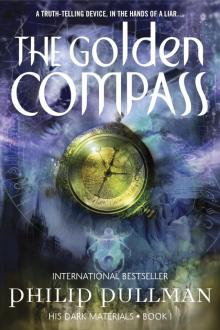 The Golden Compass
The Golden Compass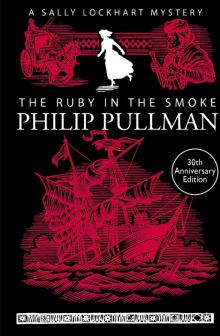 The Ruby in the Smoke
The Ruby in the Smoke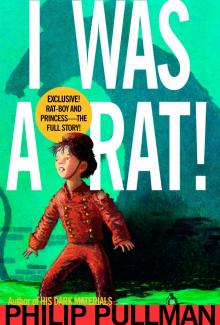 I Was a Rat!
I Was a Rat!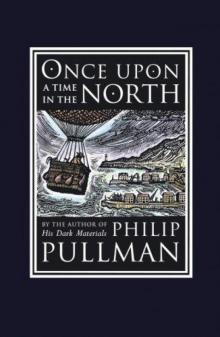 Once Upon a Time in the North
Once Upon a Time in the North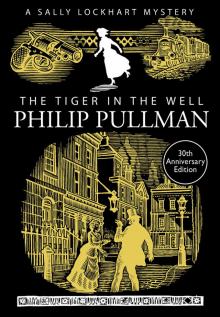 The Tiger in the Well
The Tiger in the Well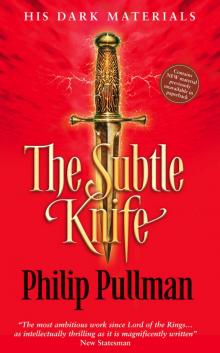 The Subtle Knife
The Subtle Knife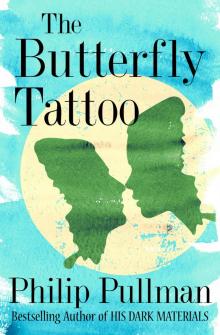 The Butterfly Tattoo
The Butterfly Tattoo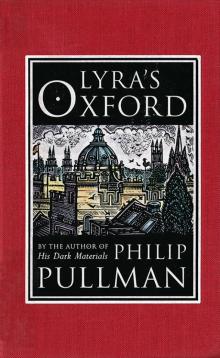 Lyra's Oxford
Lyra's Oxford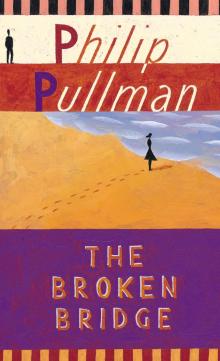 The Broken Bridge
The Broken Bridge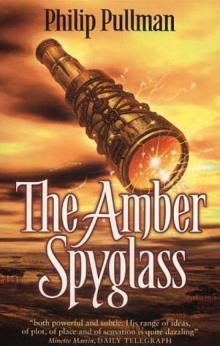 The Amber Spyglass
The Amber Spyglass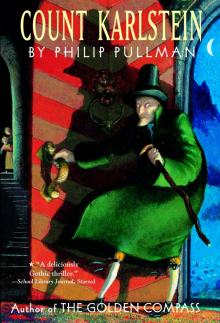 Count Karlstein
Count Karlstein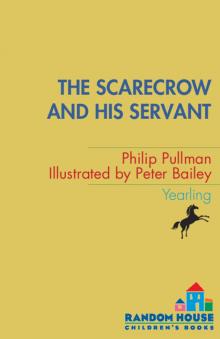 The Scarecrow and His Servant
The Scarecrow and His Servant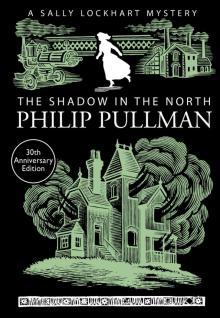 The Shadow in the North
The Shadow in the North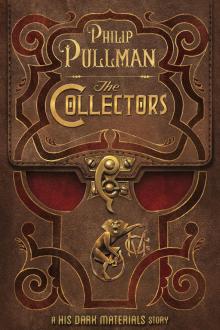 The Collectors
The Collectors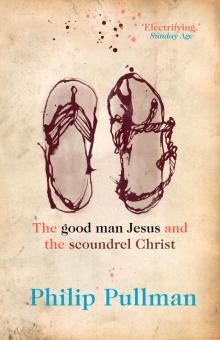 The Good Man Jesus and the Scoundrel Christ
The Good Man Jesus and the Scoundrel Christ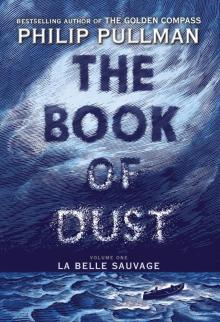 La Belle Sauvage
La Belle Sauvage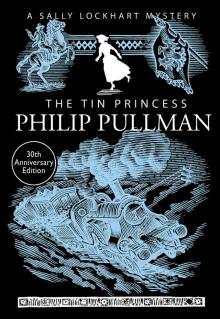 The Tin Princess
The Tin Princess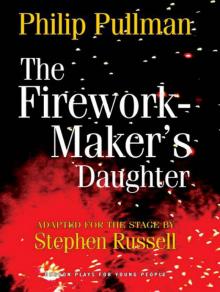 The Firework-Maker's Daughter
The Firework-Maker's Daughter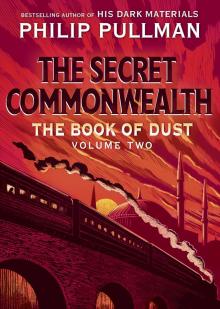 The Book of Dust: The Secret Commonwealth (Book of Dust, Volume 2)
The Book of Dust: The Secret Commonwealth (Book of Dust, Volume 2)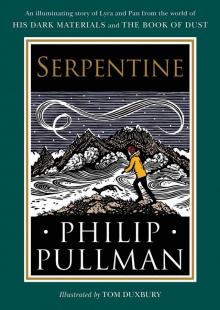 Serpentine
Serpentine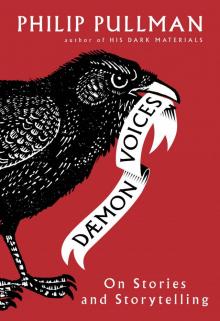 Daemon Voices
Daemon Voices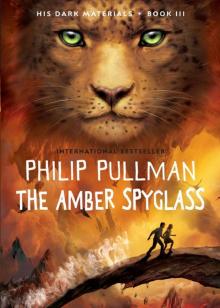 The Amber Spyglass: His Dark Materials
The Amber Spyglass: His Dark Materials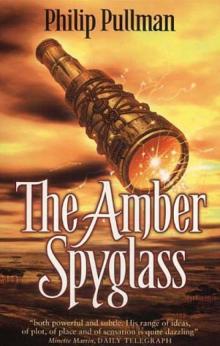 The Amber Spyglass hdm-3
The Amber Spyglass hdm-3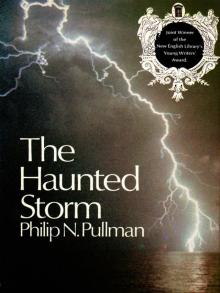 The Haunted Storm
The Haunted Storm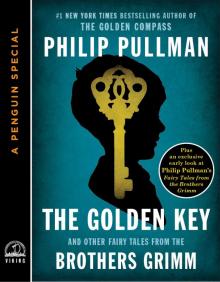 The Golden Key
The Golden Key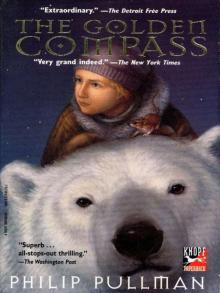 His Dark Materials 01 - The Golden Compass
His Dark Materials 01 - The Golden Compass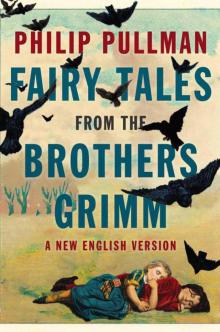 Fairy Tales from the Brothers Grimm: A New English Version
Fairy Tales from the Brothers Grimm: A New English Version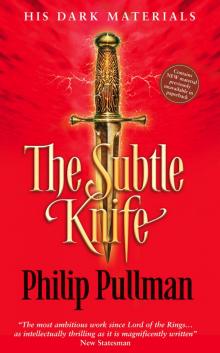 His Dark Materials 02 - The Subtle Knife
His Dark Materials 02 - The Subtle Knife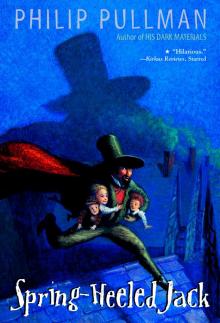 Spring-Heeled Jack
Spring-Heeled Jack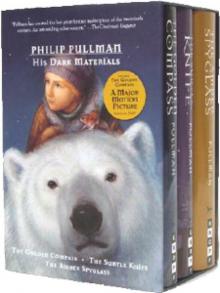 The Golden Compass hdm-1
The Golden Compass hdm-1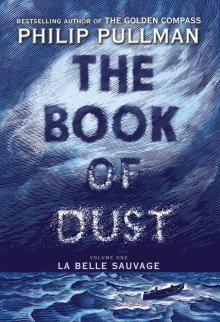 The Book of Dust, Volume 1
The Book of Dust, Volume 1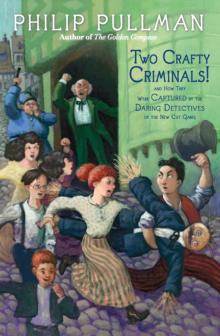 Two Crafty Criminals!
Two Crafty Criminals!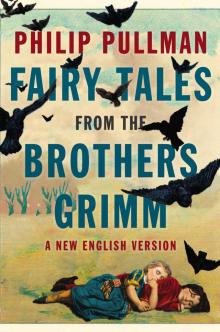 Fairy Tales from the Brothers Grimm
Fairy Tales from the Brothers Grimm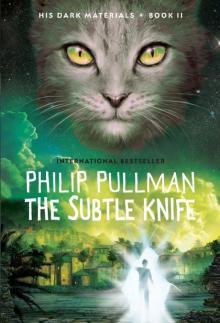 The Subtle Knife: His Dark Materials
The Subtle Knife: His Dark Materials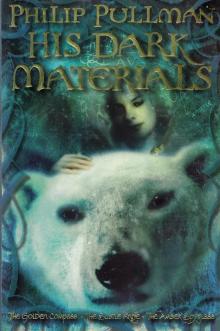 His Dark Materials Omnibus
His Dark Materials Omnibus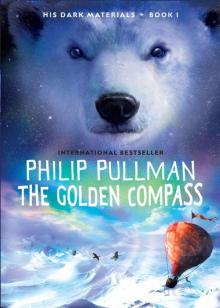 The Golden Compass: His Dark Materials
The Golden Compass: His Dark Materials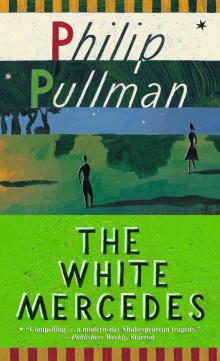 The White Mercedes
The White Mercedes